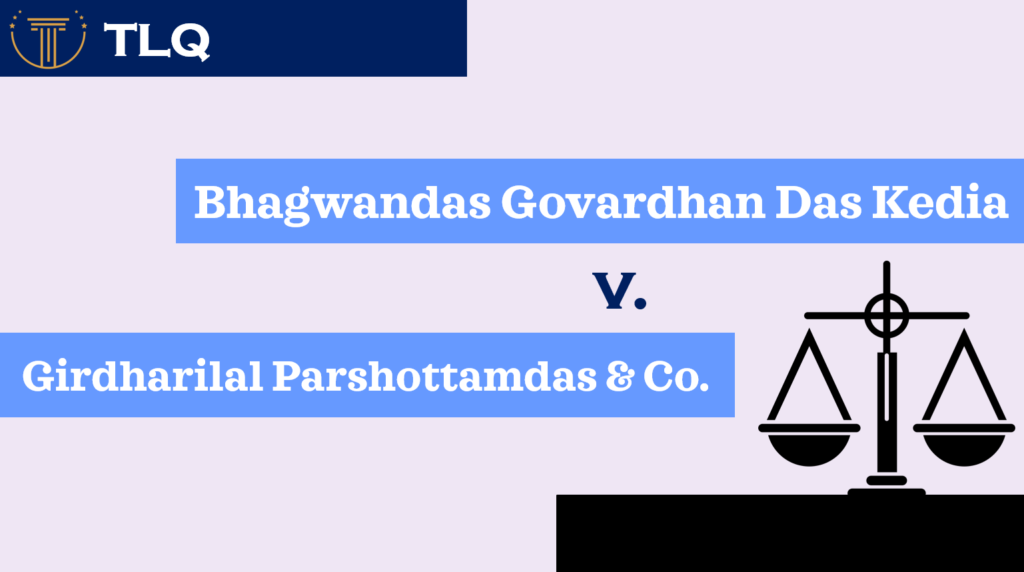Published On: 18th September, 2024
Authored By: Abhinav Mishra
BANARAS HINDU UNIVERSITY
Introduction
Consumer arbitration has emerged as a pivotal mechanism in resolving disputes between consumers and businesses outside the traditional court system. As an alternative dispute resolution (ADR) process, arbitration offers a streamlined method to handle conflicts, often outlined in the fine print of consumer contracts. Despite its benefits, arbitration has sparked significant debate regarding fairness, transparency, and consumer rights. This article delves into the evolution, legal framework, advantages, criticisms, and recent developments in consumer arbitration.
Historical Context
The concept of arbitration has ancient roots, with evidence of its use in various cultures throughout history. In the United States, modern consumer arbitration began to take shape with the passage of the Federal Arbitration Act (FAA) in 1925. The FAA was designed to address concerns that arbitration agreements, particularly in commercial contexts, were often disregarded by the courts. Its primary aim was to promote arbitration as a viable alternative to litigation by ensuring that arbitration agreements were enforced.
In the latter half of the 20th century, the expansion of consumer markets and the proliferation of standard-form contracts necessitated a more robust framework for handling consumer disputes. The rise of consumer arbitration in this era can be attributed to the increasing use of arbitration clauses in various consumer agreements, including those related to credit cards, cell phone services, and online transactions.
Legal Framework
Federal Arbitration Act (FAA)
The FAA is the cornerstone of arbitration law in the United States. Its key provisions include:
- Section 2: This section mandates that written arbitration agreements are “valid, irrevocable, and enforceable” and pre-empts any state law that undermines such agreements.
- Section 3: This section provides for a stay of judicial proceedings if the issues are subject to arbitration.
- Section 4: This section allows parties to petition the court to compel arbitration when one party refuses to honour an arbitration agreement.
The FAA emphasizes the enforcement of arbitration agreements and decisions, providing a legal framework that supports the efficiency and finality of arbitration.
State Laws and Regulations
While the FAA provides a federal baseline, individual states may have their own laws governing arbitration. These state laws can vary widely, affecting aspects such as procedural rules, the scope of arbitrator authority, and the enforceability of arbitration clauses. States like California and New York have implemented additional consumer protection measures to address concerns specific to their jurisdictions.
Supreme Court Jurisprudence
The U.S. Supreme Court has issued several important rulings on consumer arbitration that have shaped the legal landscape of how arbitration agreements are enforced and interpreted. These rulings address various aspects of arbitration, including the enforceability of arbitration clauses, class action waivers, and the scope of arbitrators’ powers. Below is a detailed analysis of key Supreme Court rulings in consumer arbitration:
- AT&T Mobility LLC v. Concepcion (2011)
Case Overview:
- Citation: 563 U.S. 333 (2011)
- Issue: Whether a California law that invalidated class action waivers in arbitration agreements was pre-empted by the Federal Arbitration Act (FAA).
Ruling: The Supreme Court ruled that the FAA pre-empts California’s rule that invalidated class action waivers in arbitration agreements. The Court held that the FAA’s policy favouring arbitration required the enforcement of class action waivers in arbitration clauses, even if state law would have invalidated such waivers.
Impact: This decision reinforced the enforceability of arbitration agreements containing class action waivers and emphasized that the FAA’s pro-arbitration policy overrides state laws that conflict with this policy. It significantly impacted consumer protection by limiting consumers’ ability to join class actions.
- Epic Systems Corp. v. Lewis (2018)
Case Overview:
- Citation: 584 U.S. ___ (2018)
- Issue: Whether arbitration agreements that include class action waivers are enforceable under the FAA, particularly in the context of employment disputes.
Ruling: The Supreme Court held that the FAA allows employers to enforce arbitration agreements that include class action waivers. The Court determined that such agreements are valid and enforceable, even if they prevent employees from participating in class actions.
Impact: This ruling extended the Concepcion decision to employment disputes, reaffirming the enforceability of class action waivers in arbitration agreements. It has broad implications for employment law and consumer protection, as it affects employees’ ability to pursue collective legal actions.
- AT&T Mobility LLC v. Concepcion (2011)
Case Overview:
- Citation: 563 U.S. 333 (2011)
- Issue: The enforceability of an arbitration clause that included a class action waiver in a consumer contract, and whether California’s rule against such waivers was preempted by the FAA.
Ruling: The Court found that the FAA pre-empts state laws that invalidate class action waivers in arbitration agreements. This decision upheld the validity of arbitration agreements that include such waivers, enforcing the clause as written.
Impact: The decision affirmed that the FAA’s pro-arbitration stance overrides state laws that attempt to limit or invalidate arbitration agreements containing class action waivers, thereby promoting the enforceability of such clauses.
- Schein v. Archer & White Sales, Inc. (2019)
Case Overview:
- Citation: 586 U.S. ___ (2019)
- Issue: Whether a court or an arbitrator should decide whether a dispute is arbitrable when an arbitration agreement includes a broad delegation clause.
Ruling: The Supreme Court ruled that when an arbitration agreement contains a broad delegation clause, it is the arbitrator’s role, not the court’s, to determine the scope of arbitrability. This decision emphasized that arbitration clauses delegating questions of arbitrability to the arbitrator should be enforced.
Impact: This ruling clarified that disputes over whether an issue falls within the scope of an arbitration agreement, when delegated to an arbitrator, must be resolved by the arbitrator rather than the court. It reinforces the principle that arbitrators have the authority to decide on their own jurisdiction under certain agreements.
- Buckeye Check Cashing, Inc. v. Cardegna (2006)
Case Overview:
- Citation: 546 U.S. 440 (2006)
- Issue: Whether a court or an arbitrator should determine the validity of an arbitration agreement when a party challenges the agreement on grounds that go to the contract’s validity as a whole.
Ruling: The Supreme Court held that challenges to the validity of an arbitration agreement, based on allegations that the entire contract is invalid, must be resolved by the arbitrator, not the court. The Court ruled that a challenge to the entire contract does not invalidate the arbitration agreement specifically.
Impact: This decision reinforced the notion that arbitration agreements should be enforced even if there are broader challenges to the underlying contract, provided that the arbitration agreement itself is valid.
- Rent-A-Center, West, Inc. v. Jackson (2010)
Case Overview:
- Citation: 561 U.S. 63 (2010)
- Issue: Whether a court or an arbitrator should decide the enforceability of an arbitration agreement when the agreement includes a delegation clause that grants the arbitrator authority to decide enforceability.
Ruling: The Supreme Court ruled that if an arbitration agreement includes a delegation clause that delegates the authority to determine the enforceability of the arbitration agreement to the arbitrator, then it is for the arbitrator to decide, not the court.
Impact: This decision solidified the principle that delegation clauses in arbitration agreements are enforceable, and it is within the arbitrator’s purview to decide on the enforceability of the arbitration clause.
- DirecTV, Inc. v. Imburgia (2015)
Case Overview:
- Citation: 136 S. Ct. 463 (2015)
- Issue: Whether a California state law that declared certain arbitration agreements unenforceable was pre-empted by the FAA.
Ruling: The Supreme Court ruled that the FAA pre-empts California’s rule that rendered certain arbitration agreements unenforceable. The Court held that the state law was inconsistent with the FAA’s mandate to enforce arbitration agreements as written.
Impact: The ruling reinforced the FAA’s dominance over state laws that attempt to limit or invalidate arbitration agreements, thereby ensuring that arbitration agreements are enforced according to their terms.
The Arbitration Process
Arbitration Agreements
Arbitration agreements are typically included in consumer contracts and outline the terms under which disputes will be resolved through arbitration. Key features include:
- Pre-Dispute vs. Post-Dispute: Most consumer arbitration clauses are pre-dispute, meaning they are agreed upon before any conflict arises. In contrast, post-dispute agreements are made after a conflict has occurred.
- Mandatory Clauses: Many contracts include mandatory arbitration clauses, which require consumers to resolve disputes through arbitration rather than through the courts.
- Opt-Out Provisions: Some arbitration agreements offer consumers the option to opt out, although this is not universally available.
The Arbitration Procedure
The arbitration process generally involves the following steps:
- Filing a Claim: The party initiating arbitration submits a claim to the arbitration organization, outlining the dispute and the relief sought.
- Selection of Arbitrators: Arbitrators are selected based on the agreement between the parties or by the arbitration organization. They are usually experts in the relevant field.
- Arbitration Hearing: The hearing is less formal than a court trial, with both parties presenting evidence and arguments.
- Decision and Award: The arbitrator issues a decision, known as an award, which is binding and enforceable. The grounds for challenging an arbitration award are limited.
Pros and Cons of Consumer Arbitration
Advantages
- Efficiency: Arbitration is typically faster than traditional court proceedings, which can be beneficial for resolving disputes promptly.
- Cost-Effectiveness: The streamlined nature of arbitration can reduce legal costs for both parties.
- Expertise: Arbitrators are often experts in the relevant field, which can lead to more informed and accurate decisions.
- Confidentiality: Arbitration proceedings are generally private, which can be advantageous for parties seeking discretion.
Disadvantages
- Limited Appeal Rights: Arbitration decisions are usually final and binding, with very limited grounds for appeal. This can be a disadvantage if the outcome is unfavourable.
- Potential Bias: There are concerns about potential bias, particularly if a business frequently uses the same arbitration service provider.
- Transparency Issues: The private nature of arbitration can lead to a lack of transparency, which may undermine public trust in the process.
Criticisms and Controversies
Consumer Protections:
Critics argue that arbitration agreements often favor businesses over consumers. Common concerns include:
- Unconscionability: Some arbitration clauses are deemed unconscionable due to their terms being excessively one-sided. Courts may invalidate such clauses if they are found to be fundamentally unfair.
- Class Action Waivers: The inclusion of class action waivers in arbitration agreements prevents consumers from pursuing collective claims, which can be detrimental in cases where individual claims are too small to litigate independently.
Access to Justice:
There are concerns that arbitration may limit access to justice for consumers, especially when:
- Inadequate Legal Representation: Consumers may lack the resources to engage in arbitration effectively, particularly if they are up against well-resourced businesses.
- Complexity: The arbitration process can be complex, and consumers may not fully understand their rights or the implications of arbitration clauses.
Recent Developments:
Recent trends in consumer arbitration include:
- Increased Regulation: There have been calls for greater regulation of arbitration practices to ensure fairness and transparency. Some states have introduced measures to protect consumers, such as requiring clearer disclosure of arbitration clauses.
- Judicial Review: Courts continue to scrutinize arbitration agreements for fairness, particularly in cases involving unconscionability or excessive bias.
- Legislative Efforts: Various legislative proposals aim to address concerns about arbitration, including those related to class action waivers and mandatory arbitration clauses.
Conclusion
Consumer arbitration remains a significant mechanism for resolving disputes between consumers and businesses. Its evolution reflects a balance between promoting efficient dispute resolution and addressing concerns about fairness and transparency. While arbitration offers numerous benefits, including speed and cost savings, it also presents challenges related to consumer protections and access to justice. As the landscape of consumer arbitration continues to evolve, ongoing scrutiny and regulatory efforts will play a crucial role in shaping its future.




